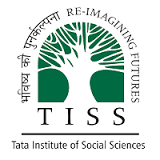About This Course
Remember your time as a child. What are the first few things which come to your mind? Toys, I am sure, would be one of them! Paper planes, tops, marbles, kites, different kinds of whistles, swings, paper spinner, all these things enriched our childhood! Notice that some of these were made by us, or sometimes by an some elder person at home or neighbourhood. We learned many scientific concepts such as rotation, precession, oscillations, pressure, friction, while playing and making these toys. Let us try to recreate this process of authentic learning more systematically with our students. And yes, let us make interesting things, play with them and wonder how they work once again!
In this course, we will integrate learning from digital medium and hand-on learning. The videos in this course are developed by an eminent educationist, Arvind Gupta and his team at the science outreach centre of the Inter-Univercity Centre for Astronomy and Astrophysics (IUCAA), Pune with the support from the Tata Trusts.
Course Objectives
At the end of the course you will be able to:
- Bringing a shift from lecturing mode to facilitating children towards learning by doing.
- Practicing hands-on skills, designing, problem solving and learning from mistakes.
- Learning collaboration in the process of making toys together and having discussions to find out the underlying principles.
Unit Names
- Unit 1: The Magic of Straws
- Unit 2: Meet the Magnets
- Unit 3: Electronics and Motors
- Unit 4: Matchsticks and Shapes
Requirements
You will require the following things to do this course:
1. A notebook to write your explanations and notes.
2. You should have access to a computer (with USB port, audio + video player & internet connection)
3. You can arrange two consecutive periods to make a one hour class (once a week) for 4 weeks
4. Ideal number of students in a class is 40 (with at least two teacher to facilitate the class). More number of students are ok if all three teachers are facilitating the class. However, Toh can do this course with just 2-3 students.
5. You can arrange the following material for the class: Cutters, scissors, glue, tixo-tape, straws, sticks, rubber sheet, paper, rubber tube, matchstick.
Course Staff
Shamin Padalkar
Assistant Professor, CETE, TISS
For my doctoral project I developed a pedagogy for elementary astronomy with a focus on visuospatial thinking. As a Postdoctoral Fellow at UCSB I designed and tested an intervention to improve representational competence of undergraduate students in steriochemistry. I now work on TPD for CLIx Science and also closely follow the development of the Science curriculum.
Rafikh Shaikh
Senior Research Coordinator, CETE, TISS
My research interest is in the area of educational technology in general and the role of computer-mediated collaboration in education in particular. We are comparatively studying two environments, one with computer-mediated group interaction and the other with one-to-one interaction with the computer. We are trying to understand the processes involved in learning in both environments. I’m also interested in approximate number system (ANS) and its connection with formal mathematics. As a part of Science Team at CLIx, I am working on the Basic Astronomy Module. I am helping in revising the student module, collecting and analyzing the data and writing research reports.
Avanish Singh
Research Associate, CETE, TISS
Avanish Singh is an engineer turned educator. He completed his master's at Azim Premji University in Bangalore. In line with his previous work experience, he is passionate about science and mathematics pedagogy and the intersection of work and education. Currently, He is working as a research associate at the Centre of Excellence in Teacher Education, TISS, Mumbai.
Frequently Asked Questions
How can I access the course on a smartphone?
You can access the course via TISSx app on your smartphone. You can install the app from Playstore.
Whom do I contact for further information?
Write in to cete.stp@clixindia.org
What web browser should I use?
The Open edX platform works best with current versions of Chrome, Firefox or Safari, or with Internet Explorer version 9 and above.
See our list of supported browsers for the most up-to-date information.
Course Card Image Credits: Image by PublicDomainPictures from Pixabay




